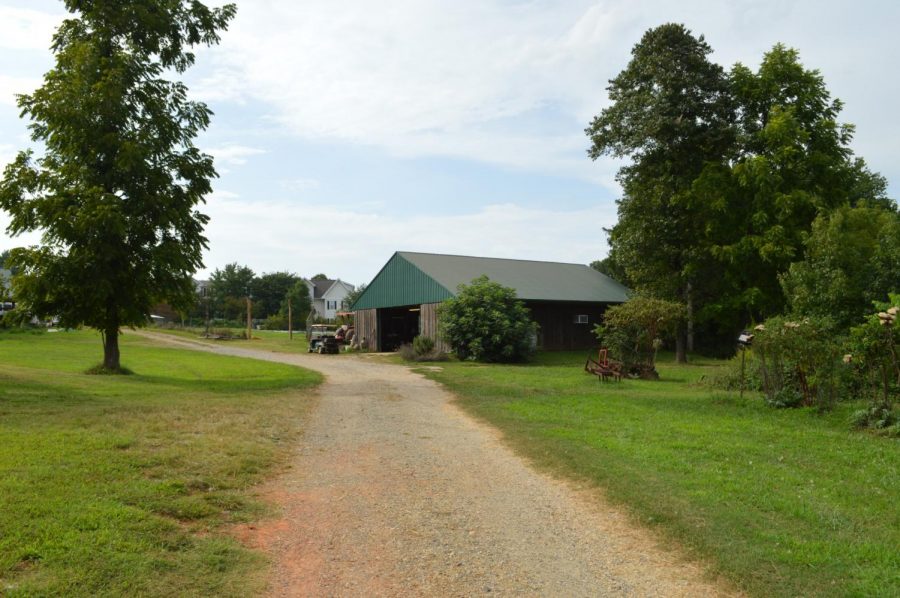Guilford farmers market offers fresh, sustainable produce
Every Tuesday from 4 to 6 p.m., the area across the street from the New Garden Friends School becomes a vibrant farmers market full of fresh produce. People from Guilford County come to buy fresh fruits and vegetables grown on the Guilford College Farm. In its fields and greenhouses, the farm grows peppers, eggplants, tomatoes, watermelon, peppers, and many other fruits and vegetables found on the typical dinner table.
The farm lies at the end of an unpaved road, which can be found by traveling through the back of The Early College at Guilford parking lot and past the front of New Garden Friends School.
The final destination is a hill. To the right lies an expansive disc golf course, spilling into the forest, and to the left lie two white rows of plastic greenhouses, teeming with vines and other produce. Above lies the massive green barn, housing a rainbow-like mix of fruits and vegetables.
Nick Mangili helps manage the farm with his wife, Audrey. Audrey Mangili stands around the farm warmly greeting people with her energetic daughter and Boxer dog. Direct contact with the couple and the exquisite expanse of the field next to the market helps buyers maintain trust in the fruits and vegetables.
Compared to the impersonal sales of fruits and vegetables at a local grocery store, the market offers a more personal experience. Here, buyers know exactly where they are getting their produce from; in fact, they can see the greenhouse and fields from where it was harvested. The market avoids many of the information-packed labels that prevail in retail stores.
The customer base is relatively small compared to more prominent farmer’s markets in the region, partly due to its lack of advertisement and relative difficulty to locate. Currently, the farm’s business is aided by word of mouth and the Guilford Buzz. People can sign up for weekly emails that contain updates on the market by emailing farmer Nick at [email protected].
The farm relies on volunteers and interns who provide the bulk of the farm labor.
“It’s considered like a learning laboratory,” Audrey Mangili said. “But it’s been here for a long time. And it’s a part of the history of the farm to have food being cultivated on campus to support the student population.”
However, due to reliance on volunteer work, the farm operation was not always manageable. Before the pandemic, the farm operated with a fresh produce pickup program known as the Community-Supported Agriculture (CSA). Families that ordered boxes from the farm could pick up fresh produce packed by volunteers every week.
But this program was too demanding to maintain. A rapid increase to nearly 100 customers created difficulties in supplying fresh produce every week, according to Audrey Mangili. As a result, the farm decided to switch to an open market to fulfill consumer demands reasonably.
“I like the fact that there are generally no pesticides. I know that it’s locally grown,” Lexi Eagles, a dedicated 2-year customer of the farm, explained. “I mean if Nick uses anything, you know, bug-wise, and such, he lets you know. It’s fresh. It’s right out of the ground, and doesn’t cause transportation issues and climate change.”
The terrifying potential of climate change on the human race has motivated many citizens, such as Eagles, to take action. Earlier this year, the International Panel on Climate Change released its first major report in nearly eight years, stating that “We are monitoring our own extinction.” As a result, clean and natural produce is becoming a central selling point for the market.
Even though the farm has changed its method over the years, it still maintains its core values of providing for Guilford College and Guilford County. It continues to sell organic crops and offers a unique opportunity for residents to be informed about how their food is produced.








